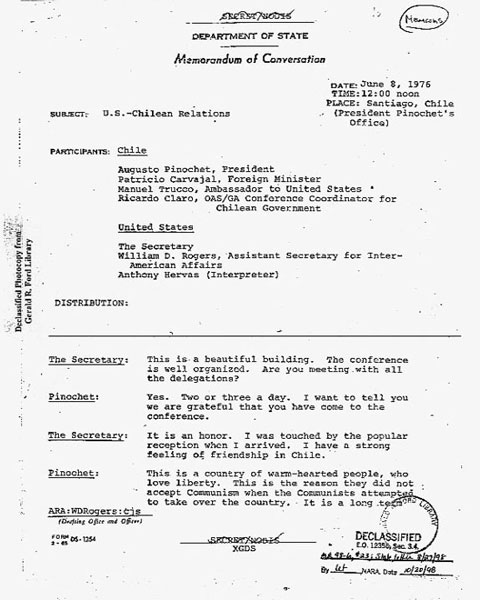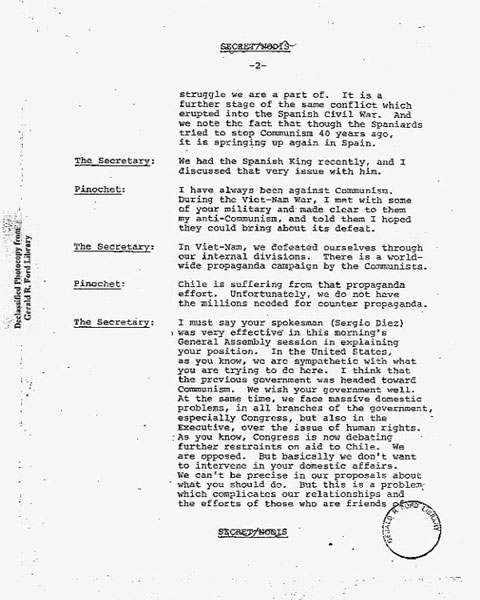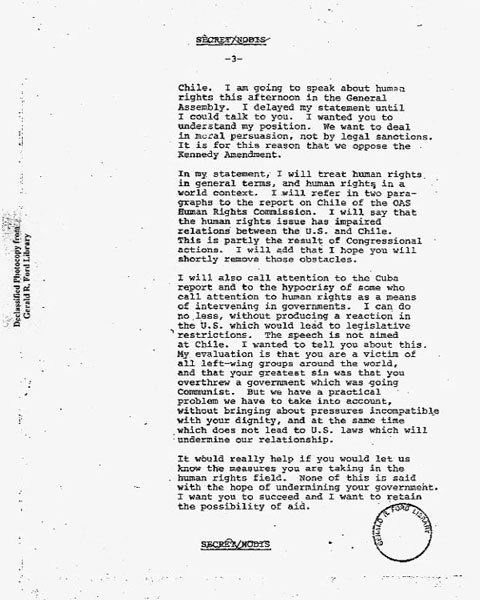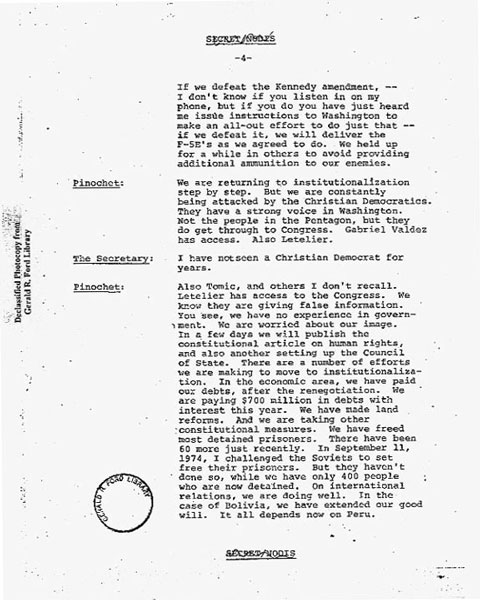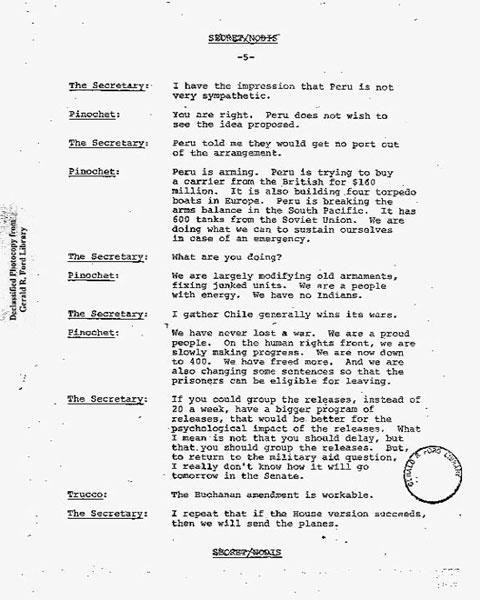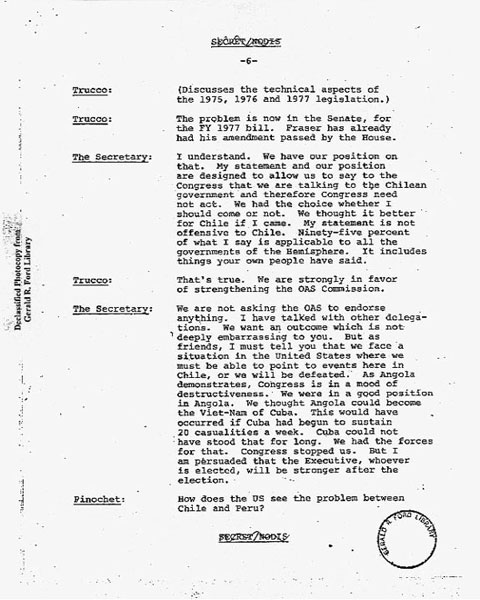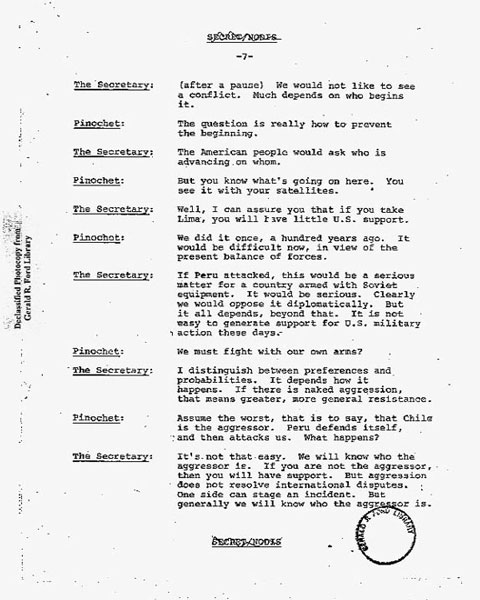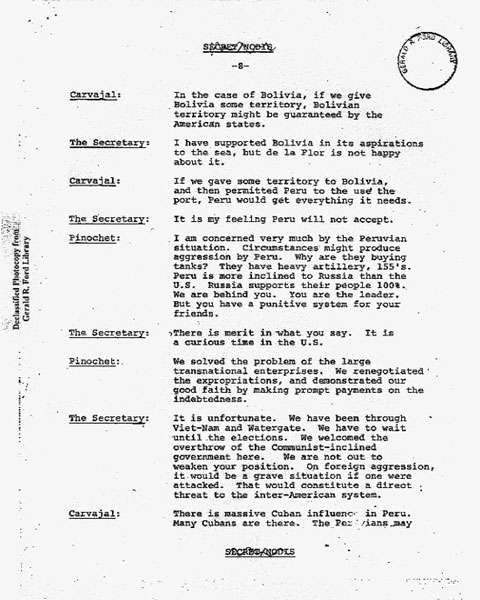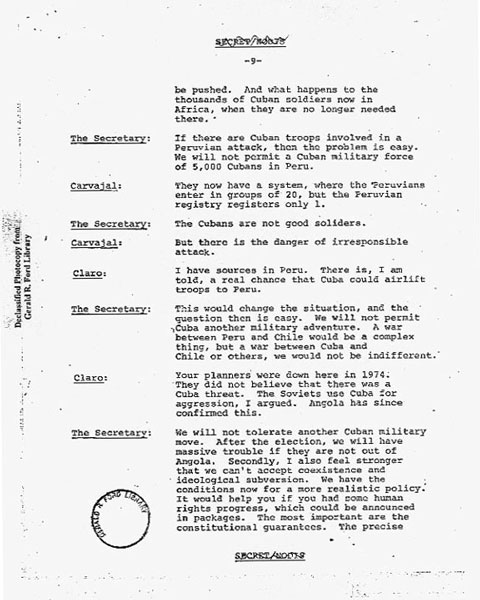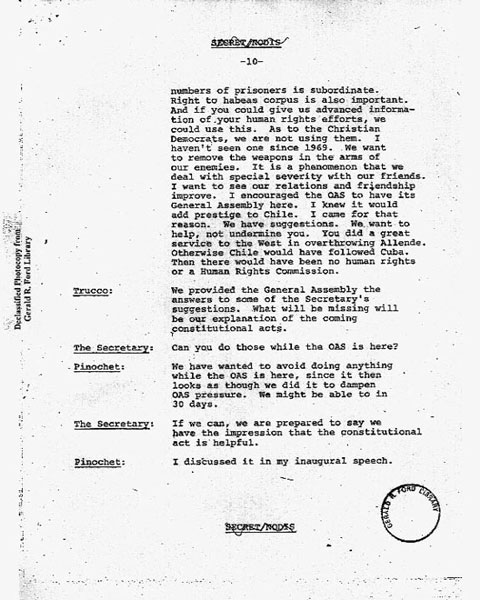By Lucy Komisar
In the 1990s I was doing research about human rights policy and spent some time at presidential libraries. I was quite interested in a secret memorandum in the Ford Library. In the standard way classified documents are indicated, it appeared in the Chile files on a pink sheet as a memorandum with a date, the number of pages and not much else. It was 1995.I asked for it to be declassified. Four years later, it arrived in the mail.
It turned out to be a ten-page memorandum written by Secretary of State for Latin America William Rogers about a meeting that his boss, Secretary of State Henry Kissinger had with Chilean dictator Pinochet at the time of the Organization of American States meeting in Santiago in 1976.
The gist of it was that Kissinger told Pinochet that he was going to have to talk about human rights in his public speech, but don‘t worry, with hundreds of political prisoners still jailed and tortured after the military coup three years earlier, the U.S. would not hold that against him. Pinochet was the target of international censure; Kissinger told him not to pay too much attention to American critics.
It just happened that the time I got the memo, Kissinger was completing a volume of his memoirs. His previous memoir hadn‘t mentioned the Chile coup, and he‘d been criticized for that, so this book would include a section about how he had pressed Pinochet on human rights at their private meeting.
A cousin of mine worked for Kissinger‘s publishing house and got me the pre-publication galleys. He lied egregiously about the meeting, even quoting some parts of the 10-page memorandum in a way that distorted its meaning.
I tried to sell a story based on the memorandum that told what Kissinger really discussed with Pinochet. No mainstream media was interested. I called someone I knew at the NY Times Book Review and asked to write a sidebar next to the review I knew they would run of his book. I of course knew that the part about Chile was full of lies, and I had the evidence. The editor declined, saying they were looking for literary contributions. That of course was a lie. A friend who had been a high official in the Reagan Administration told me, “Lucy, Henry is powerful.”
So I ended up publishing the story in The Progressive, an alternative monthly, and also in The Observer, a major weekly paper in London, and El Pas, the biggest daily in Madrid where it made the front page.
Sometime later, I attended a Council on Foreign Relations meeting where Kissinger presented his book. At the reception, I went up to him and said, “You didn‘t tell the truth about your meeting with Pinochet” and explain what I knew had happened. He said, “Well, that‘s the way you have to talk to people like that,” insisting that he really in his own way had pressed the rights issue. We went back and forth, and then parted. But a few minutes later, he came up to me to continue the discussion. Finally, he said, “well, you should write about it.” I said, “I have.” He said, “I know.”
That was very satisfying. He probably saw The Observer. But the story was never ever reported in a mainstream American publication. Henry is very powerful.
The Progressive – Kissinger Declassified p1
The Progressive – Kissinger Declassified p2
The Progressive – Kissinger Declassified p3
The declassified memo:


